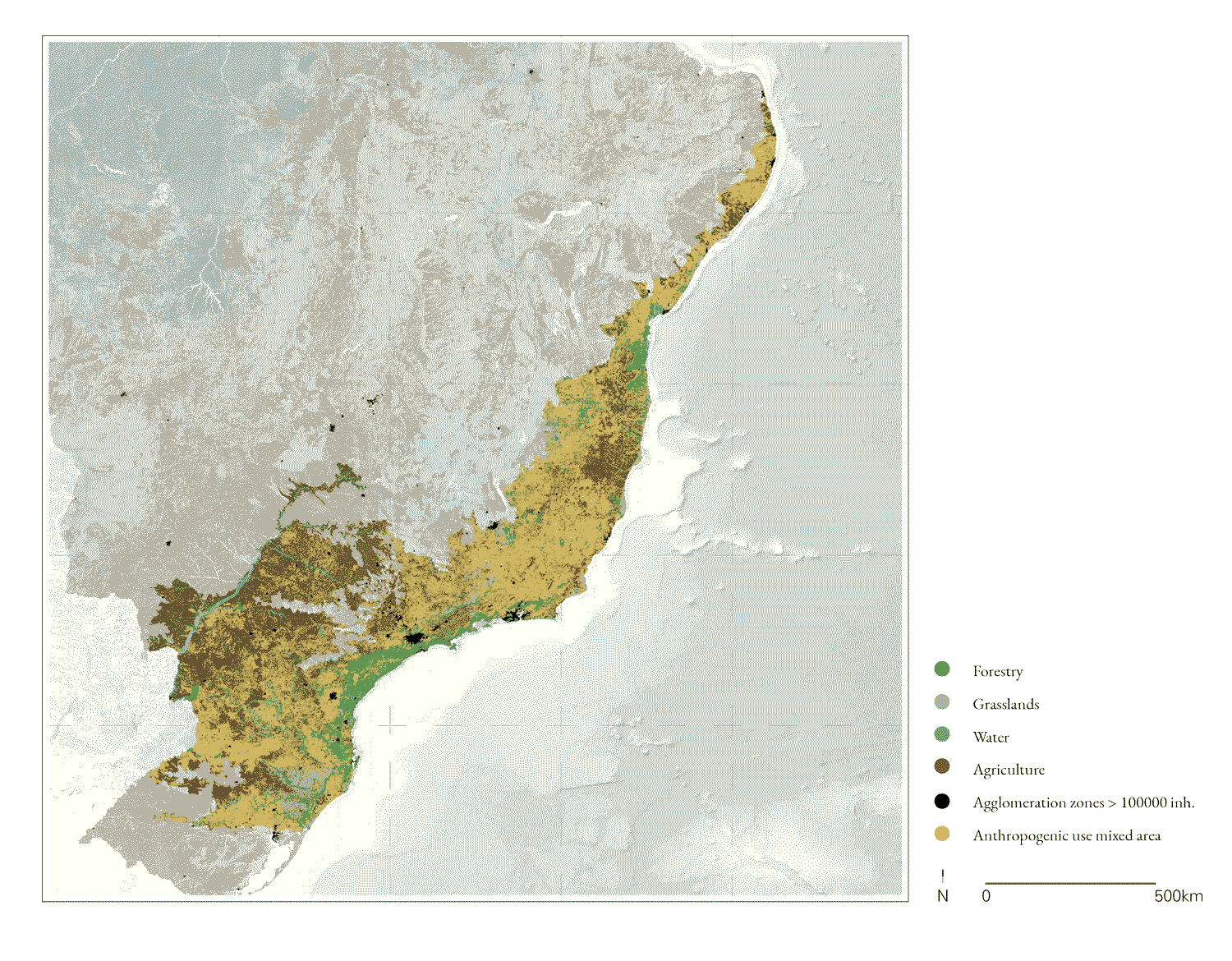
'Memories from worlds yet to be inhabited' collects the research from Hugo López Silva
This website is being designed to minimise the energy consumption and CO2 emissions that result from navigating the internet. Know more.
The Atlantic Forest as an urban project
Research proposal
Hugo López
In development
Proposed topic
This research explores the agency of the Atlantic Forest, a territory stretching along the coast of South America, to revisit urbanisation processes through environmental lines. It revisits the territory's intersections into the past, present and future of socio-spatial transformation, taking the perspective of the forest themselves. A territorial and decolonial approach aims to support this engagement by being attentive to the territorialities that make the Atlantic Forest biome of Rio de Janeiro. Seeing as marginal to the urban, aldeias, quilombos, favelas, assentamentos, and conservation units (UCs) are yet to be recognised in their socio-spatial prefiguration of insurgent urban realities of sustainability and, most crucially, of mobilisation for validation, solidarity, and a pluriverse of livelihoods and forms of organisation. The project focuses on the tensions between the territoriality of a quilombo (communities of Afro-descendants) and conventional environmental conservationist and urban planning approaches that struggle to recognise the material-symbolic and socio-spatial values, practices, and political contestation of their ways of understanding, relating, and governing the territory (Miraftab, 2017). Notably, the quilombo enacts distinct approaches to land relations and collective design and governance, reconciles urban and nature, and articulates counternarratives of urbanisation processes. Specifically, the project engages with the past, present, and future, rememorating and reimagining the Atlantic Forest as an urban project to rethink urban-environmental paradigms and critically examine responses to these ancestral (Krenak, 2022) and emergent urban spaces (Horn et al., 2018), which challenge dominant conceptions of territory and urbanity in architectural and urban thought. It includes unpacking current urban sustainability transitions as well as conservation and restoration discourses and their spatial implications in everyday life, emphasising the importance of recognising heterogeneous organisational structures and territorialities forming a hybrid of Atlantic Forest as an urban project, or an emergent "urban-natural" space. The project proposes crossing scales and temporalities for a more comprehensive understanding of ‘contracolonial’ strategies and their contribution to theory, concepts, methodologies and pedagogies in disciplines involved in climate action. Moreover, this approach can problematise sustainability transition narratives and climate imaginaries, informing critical urban theory and urban planning to imagine and build new materials for a future where urbanisation processes overcome their alignment with extractive practices.

